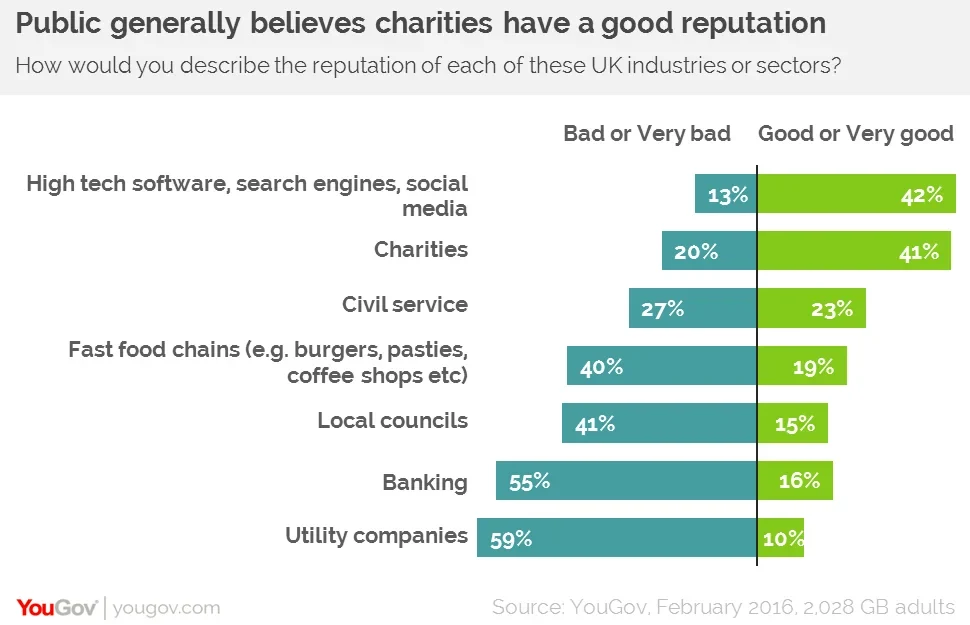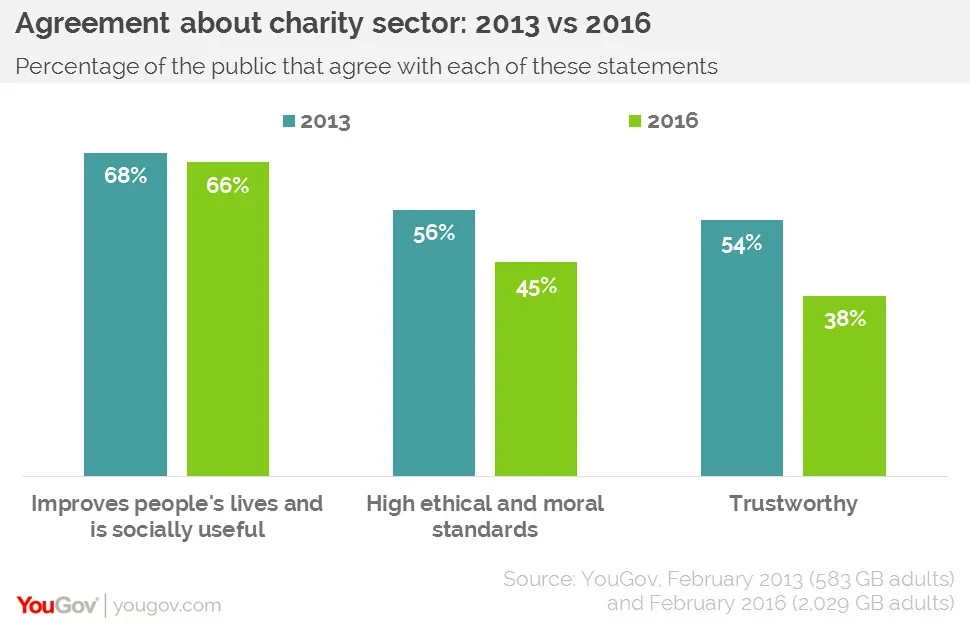There has been intense media interest in the charitable sector in the past few years.
Never before has it come under such media scrutiny. A wide range of stories – from executive pay to organisations becoming “political”, and allegations of “cold-calling” vulnerable people to supposedly questionable relationships with commercial organisations – have unflatteringly examined how the sector operates.
But what has been the overall impact on how the public views charities?
YouGov recently hosted an event where we presented new research about public attitudes towards the sector to an audience representing a wide range of organisations. Given that charitable bodies cover a very broad church – diverse in size, varied in focus, and working off radically different incomes – the research was not meant to be comprehensive. Instead it intended to establish the outline of attitudes in 2016.
First, the good news – the public think positively about charities. We asked about the reputations of various sectors and found that only technology companies score better. Four in ten (41%) people rate the charity sectors reputation as either good or very good and only one in five (20%) think the sector’s reputation is bad or very bad. This places the sector ahead of the civil service (23% good or very good, 27% bad or very bad).
Compared with other sectors that have been through the mill recently, charities are doing especially well reputationally. Over half of the public think banking had a bad or very bad reputation compared to just one in six (16%) that believe it has a good or very good one. For the utilities sector, it is even worse – with almost six in ten (59%) believing it has a negative reputation compared to just one in ten (10%) that think it has a positive one.

Clearly, then, despite the negative press for charities over the past couple of years the sector has not been dragged down to anywhere near the same extent as other sectors placed under the spotlight. Our research does though show, particularly in many of the open ended comments left by respondents, that the public feels the sector has suffered from an element of hypocrisy and that some charities have not been demonstrating the values expected of them.
Yet despite this people still believe the sector is a positive force for good which is why its general approval levels have remained positive. In 2013, before a great many of the sector’s problems were brought to the public’s attention, 68% believed the charity sector “improves peoples’ lives and is socially useful”. When we asked the same question again recently we found this figure was almost unchanged at 66% (which is a statistically insignificant difference).
However, this is not to say recent events have not taken their toll on the public’s view of charities. Since 2013 two areas have seen notable slumps. Three years ago, well over half (56%) believed the sector had “high ethical and moral standards”. Today this has fallen to 45% - down eleven percentage points. When it comes to trustworthiness, the slide is even more pronounced – from 54% in 2013 to 38% now.

Clearly such figures do not make for welcome reading. A lot of the negative feeling is driven by unflattering media coverage and our previous reputation work in many other sectors suggests that the stories only stop under two circumstances. Firstly, if journalists and editors lose interest in them. Or secondly, if the sector fixes whatever issues helped develop those stories in the first place meaning the well runs dry as there are no more stories to report.
But creating such ‘full stops’ and communicating them effectively is difficult, which is where deeper research comes in. However, given the clear impact of the events of the past few years, it is vital to the sector that it is done.
YouGov’s white paper into the charitable sector is available from y-g.co/CharityWP
This article was originally published in Charity Times
Image from PA





